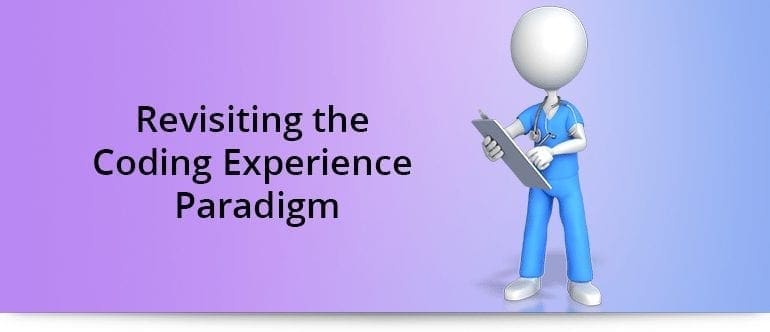Call us toll-free: 800-878-7828 — Monday - Friday — 8AM - 5PM EST

Article by Elena Miller, MPH, RHIA, CCS. This article was originally published on the Journal of AHIMA on April 11, 2018 and is republished here with permission.
Thinking back on the days when it became clear that the ICD-10 classification system was definitely going to be implemented, the Gold Rush of 1849 comes to mind. There was money to made. Whether it was hospitals creating additional coding positions to brace for the expected loss of productivity or hospitals that were willing to pay top dollar for contract coding services, every effort was made to ensure the least impact to coding production.
This resulted in an abundance of coding vacancies that needed to be filled. New coding certificate programs seemed to appear overnight. There were tons of newly credentialed coding professionals flooding the market and being hired for positions that would have previously gone unfilled. That is… until an experienced candidate applied. Anyone that has been in the health information management (HIM) industry for some time can remember the days when hospitals not only preferred experience, but many required it—especially for inpatient coding positions.
With ICD-10 on the horizon, there was an idea floating around that experience may not needed. The thought behind it was that ICD-10 would be new to everyone. Experienced coders were having to learn how to code using the ICD-10 classification system and new grads were learning it in school, so they were on an equal playing field. Right? Wrong. Knowing how to craft a code and knowing when and how to accurately apply a code are two different things. It is true that experienced coders were just learning how to craft ICD-10 codes, but they had a memory bank filled with years of Coding Clinic guidance and experience applying that guidance to various clinical scenarios.
During the few years before ICD-10 went live, most hospitals had full-time dedicated ICD-10 trainers or were paying consultants to provide these services. These trainers were also able to provide the additional training that new graduates required. Now that coding production has stabilized, many of the trainers have gone back to their previous roles or moved on to new ones. Coding vacancies seem to be remaining open a little longer and “required” is replacing “preferred” when it comes to experience in many postings. Online discussion threads are full of “I have my credential but everyone is looking for experience” posts.
Yes, there are some hospitals that still have full-time dedicated coding education staff that can provide training to new coding professionals. However, they may have competing priorities between ensuring that the current coding staff receive the necessary ongoing education and training newly hired staff. Still, many hospitals do not employ dedicated staff for coding education and training. Depending on the individual coder, it can take anywhere from three months to a year to get a new coder functioning at the expected productivity and quality standards.
Up to year? Really? Today’s coding professional has so much more to remember and consider when coding an account than they did twenty or even ten years ago. Not only do they need to worry about crafting the PCS code correctly—and let’s be honest, PCS coding can be downright difficult—but there is also clinical validation to worry about. And while Coding Clinic says “the provider’s statement that the patient has a particular condition is sufficient,” did anyone share that memo with the payers? Joking… kinda. Not every hospital has a clinical documentation improvement program and those that do, are not able to look at every record. Coding professionals touch every account, they play a role in identifying cases that require clinical validation. Then there are PSIs, HACs, HCCs, SOM, ROI… the list goes on. Coding professionals have a lot to think about when coding.
With all of that said, there are just not enough experienced coding professionals to go around. Everyone must start somewhere. How does one become an experienced coder if they are not given an opportunity? This is not a plea for employers to disregard newly credential coders. As established HIM/HIT professionals, we have a duty to pay it forward. This is merely one perspective of the challenge that employers face when deciding whether to hire a newly credentialed coder.
As mentioned before, the coding profession has changed quite a bit over the last couple of decades. How much has the curriculum of HIT and HIM programs adapted to meet the needs of the profession? Are education programs working with local employers to understand where their students may have deficiencies? What could be added to the curriculum to decrease the post-graduation training needs? Good collaboration between education programs and future employers may be the key to higher employment rates for new grads.
One comment
Comments are closed.

I’m thinking about transitioning from transcription to coding, but you give me a lot to think about. At age 56, will I be able to make the money back that I spend on education, or will I be in the same place as I am now, stuck making little money and working my butt off to make even that.